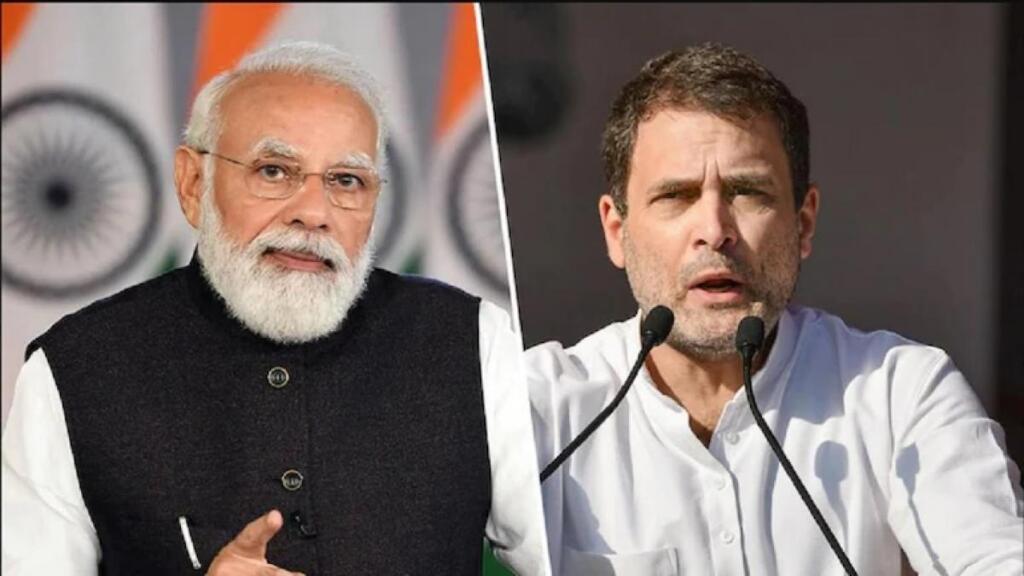In a democracy, the need for a robust and effective opposition is often emphasized. However, what defines a strong opposition? Is it merely about numbers, or are there specific constitutional methods they should employ? Most importantly, does this principle apply universally, or only when a particular political party is in power? With the 2024 General Election resulting in a numerically strong opposition, these questions demand careful consideration.
Historical Context: Congress’ Dominance
When India gained independence, the Congress party had a dominant presence across the country, from Parliament to State Assemblies. This era, known as the ‘Congress System,’ saw significant influence by Nehru. The First Amendment to the constitution, for instance, aimed to limit press freedom. When the Supreme Court upheld media freedom, Nehru introduced restrictions on free speech.
Similarly, when the judiciary upheld property rights, he amended Article 31. These actions, taken within two years of the Constitution’s adoption and before securing a formal electoral mandate, highlighted Congress’ approach to constitutional principles.
Despite being numerically weak, the opposition then was ideologically and constitutionally strong, effectively challenging dictatorial tendencies. The debates between Nehru and Dr. Syama Prasad Mookerjee on the First Amendment exemplify meaningful parliamentary discourse. Even within Congress, figures like Purushottam Das Tandon and Kanhayalal Munshi stood firm on constitutional principles over party interests.
Indira Gandhi’s Era and the Emergency
Indira Gandhi’s tenure saw further challenges to democracy. By splitting the Congress and creating the Indira Congress, she solidified a dynastic monopoly and later imposed a national Emergency, severely undermining the Constitution. Leaders like Pt. Deendayal Upadhyaya and Dr. Ram Manohar Lohia resisted her authoritarianism both inside and outside Parliament.
The Lok Sangharsh Samiti, initiated by the RSS, epitomized democratic spirit and led efforts to safeguard the Constitution and democracy. After Indira Gandhi’s assassination, Rajiv Gandhi, with a massive parliamentary majority, tried to introduce the postal bill, which threatened personal freedoms.
The opposition, though numerically weak, along with media and President Giani Zail Singh’s pocket veto, turned public opinion against the government. Corruption scandals like the Bofors case led to Congress’ first significant electoral defeat. This period underscores that a committed, responsible opposition is more crucial than merely having numerical strength.
Opposition at the State Level
Interestingly, advocates for a numerically strong opposition at the national level do not apply the same logic to state governments. In states like West Bengal, Communist and Trinamool Congress rule, despite undemocratic practices, are seen as safe for democracy. Similarly, parties practicing communal and casteist politics in Uttar Pradesh and Bihar claim to protect social justice and the Constitution.
Congress, despite promoting dynastic politics, now positions itself as a defender of the Constitution. However, tactics like running campaigns based on misinformation, misusing technology, aligning with external forces, and advocating divisive politics do not reflect responsible opposition behavior.
The Role of Technology and Media
The opposition’s smear campaign against the Election Commission and Electronic Voting Machines (EVMs) is another example of irresponsible conduct. Introduced during Rajiv Gandhi’s tenure, EVMs have been used in numerous elections with varying outcomes. Despite multiple challenges to prove their vulnerability, none succeeded, undermining opposition claims.
Constitutional Manipulations and Appointments
Nehru once criticized the legal profession for manipulating the Constitution for political gain. Ironically, today’s opposition employs similar tactics. While the government has traditionally appointed Election Commissioners, the NDA government under PM Modi included the opposition leader in this process. Nevertheless, baseless allegations against constitutional appointments persist, fueled by media influencers.
The Current Opposition Landscape
Today’s opposition comprises self-serving dynastic parties supported by international NGOs, Islamist forces, anti-India think tanks, and media houses. They view the BJP, led by PM Modi, as an obstacle to their agenda of undermining India’s cultural, economic, and strategic resurgence. Democracy thrives on diverse opinions and interests, necessitating national consensus-building through constitutional and parliamentary systems. However, if the opposition engages in practices that undermine democratic principles for political gain, it poses a greater threat to democracy than a numerically weak opposition.
ALSO READ: Dynastic Politics in Congress: 49 Years Since Emergency
